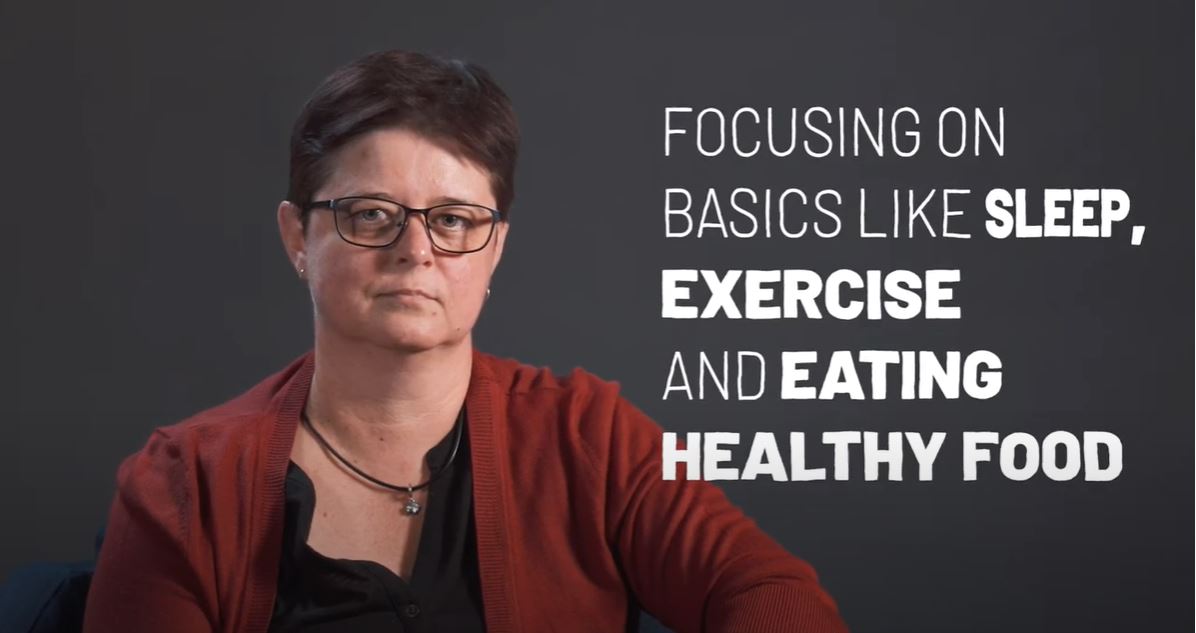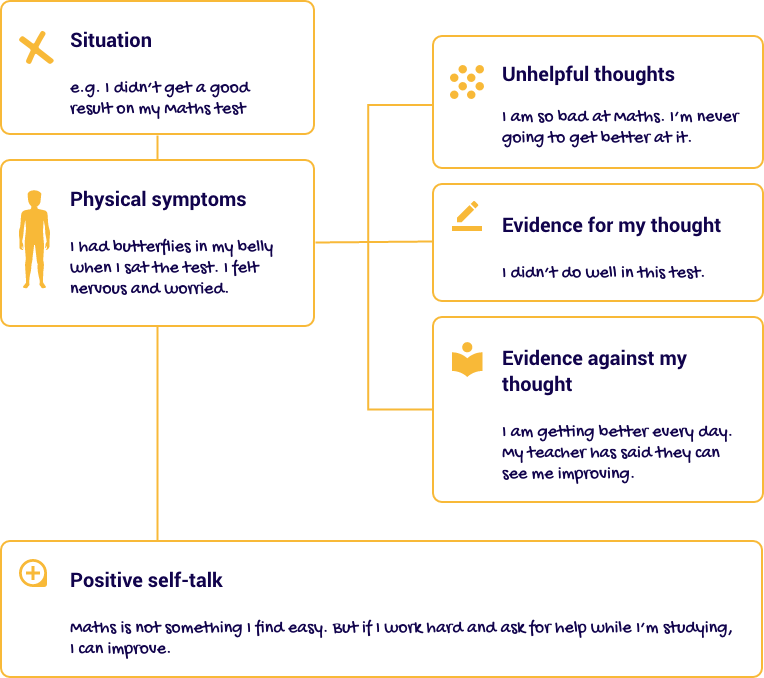There are many ways of coping with stress. Some coping strategies will work for you to help calm you down and some won’t. Some strategies may seem helpful, but in the long term, could cause harm.

Watching your favourite show can help reduce your stress and anxiety by distracting you from your problems. It can also be relaxing, especially if you are lying down.
But watching too much TV, instead of doing other activities or getting outdoors to exercise can increase your anxiety.

Sometimes we forget how important the basics are for helping us manage stress in our day-to-day lives. Getting enough sleep, doing regular exercise, finding something we enjoy and eating a balanced and healthy diet, all support our mental health and wellbeing.
The SELF Strategy will help you to remember these.


If you start to feel stressed, simply walk away from the task for a few moments to calm yourself and collect your thoughts. Get a drink, take a walk, breathe. This doesn’t mean you should abandon a project or situation because it’s difficult. But stepping away from it for even a few seconds might help you to return to the task with a new perspective and renewed energy.
Procrastination is a common response to feeling overwhelmed or stressed. It’s perfectly normal and in the short-term, may help to reduce stress. Making a plan to help you refocus and get things done can help you avoid procrastination and stress. Try writing down 3 things that you know help you focus.
Eg: Listening to music, finding a nice quiet space, having regular movement breaks

Eg: Listening to music, finding a nice quiet space, having regular movement breaks
Hanging out with friends and family can improve your mental health and wellbeing and help you feel calm and happy.

When we keep our problems to ourselves they can start to feel heavy and overwhelming. Speaking about how we feel can give us a sense of relief and calm. It also enables others to support us. Remember that whatever you’re feeling, you’re not alone.
Finding any trusted adult to speak to is a great place to start. A trusted adult is someone you have a good relationship with and has your best interests at heart. For example, it may be a friend’s parent, an Uncle, Aunty, teacher or parent.
“A problem shared, is a problem halved”JohnMIEACT Volunteer Educator

“A problem shared, is a problem halved”JohnMIEACT Volunteer Educator
They are an interactive way to spend time and can help you to reduce your stress levels. They can also be social if you’re playing with other people.
But playing games for long periods of time instead of getting outdoors to exercise or do other activities may increase your stress and anxiety. Make sure you keep things balanced.

Healthy snacks are okay if they help to cheer you up! Eating processed foods that are high in sugar, fat, salts and additives can have a negative impact on your physical and mental health.
Focus on eating well.

Focus on eating well.
Asking why can feel overwhelming at first. But it will help.
The AAAH Technique is a great way to process your stress.
What is making you stressed?
Why are you feeling stressed?
What actions can you take to address the problem? Do you have control over this situation? If not, what can you do to make yourself feel better
Sometimes asking for help seems overwhelming. It can take courage and bravery to take the first steps of opening up to someone. Don’t give up. It makes such a difference when there are others around to support you.




Studies are showing that getting out into nature has many positive effects on mental health. It can reduce levels of stress, anxiety and depression.

Self-care is what we do when we take care of our needs and refuel ourselves. Regular self-care activities are crucial to our own wellbeing.
It may seem like a simple concept, but it’s easy to overlook self-care when life gets busy. When you forget to take good care of yourself it can have negative effects on your physical, social, emotional and mental health.

 This work is licensed
under a
Creative Commons
Attribution-NonCommercial-NoDerivatives 4.0 International License.
This work is licensed
under a
Creative Commons
Attribution-NonCommercial-NoDerivatives 4.0 International License.